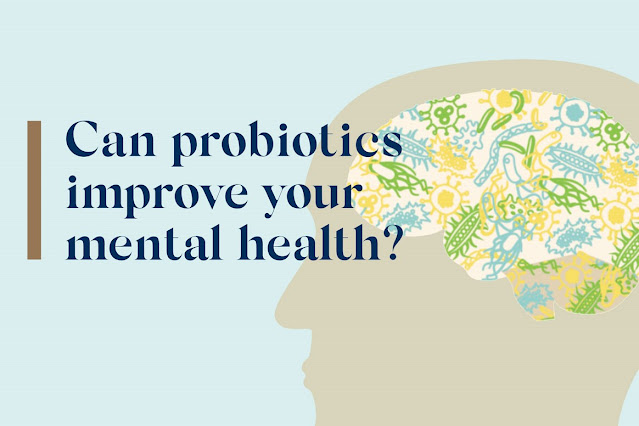Can probiotics improve mental health?
 |
| Mental Health |
Researchers have been attempting to figure
out how probiotics can help people with depression for years. This quest led to
the discovery of a new class of probiotics known as psychobiotics, which may
aid in the treatment of a variety of mental illnesses, including depression and
overall mental health.
According to research published in the
journal Translational Psychiatry by a group of researchers from the University
of Basel and the University Psychiatric Clinics Basel (UPK), probiotics can
help with the treatment of depression when combined with antidepressants.
 |
| Mental Health |
The Benefits of Probiotics in the Treatment
of Depression
This new study is based on prior discoveries
showing the composition of the bacterial flora in the gut has a major impact on
depression symptoms. The effects of probiotics on the treatment of depression
were investigated in a study led by Dr. André Schmidt and Professor Undine
Lang.
The study's subjects were inpatients at
Basel's University Psychiatric Clinics (UPK). They were randomly assigned to
one of two groups: one received probiotics in addition to antidepressants for
31 days, while the other received a placebo with antidepressants. Throughout
the investigation, neither the study personnel nor the participants had any
idea what was being given to the people in either group.
Although depressed symptoms decreased in both
groups, the participants in the probiotic group showed signs of better
improvement than those in the placebo group, according to analyses conducted
before the therapy, at the end of 31 days, and four weeks later.
The administration of probiotics also
resulted in a change in the composition of the participants' gut flora. This
change, however, was only transitory, since the amount of health-promoting gut
bacteria reduced over the next few weeks.
"It's possible that four weeks of
treatment isn't long enough, and that the new gut flora composition takes
longer to consolidate," one of the study's authors, Anna-Chiara Schaub,
reasoned.
 |
| PROBIOTICS |
Probiotics' Effect on Brain Activity
Probiotics and brain activity were also
investigated by the researchers. Patients with depression, on average, have
brain areas for emotional processing that function differently from those in
people who are in excellent mental health. Researchers discovered that after
four weeks of probiotics, only the patient in the probiotics group's brain
activity had normalized using functional magnetic resonance imaging (fMRI).
Although this study showed that probiotics
improve mental health and lessen depression symptoms, Schaub stressed that
probiotics should not be used as a stand-alone treatment for depression, but
rather as a "support treatment" for antidepressants.
"Although the microbiome-gut-brain axis
has been studied for some years, the exact mechanisms are still unknown,"
she said. With more information about the effects of various bacteria, it may
be feasible to improve the selection of bacteria and employ the appropriate mix
to support depression treatment."
 |
| PROBIOTICS |



